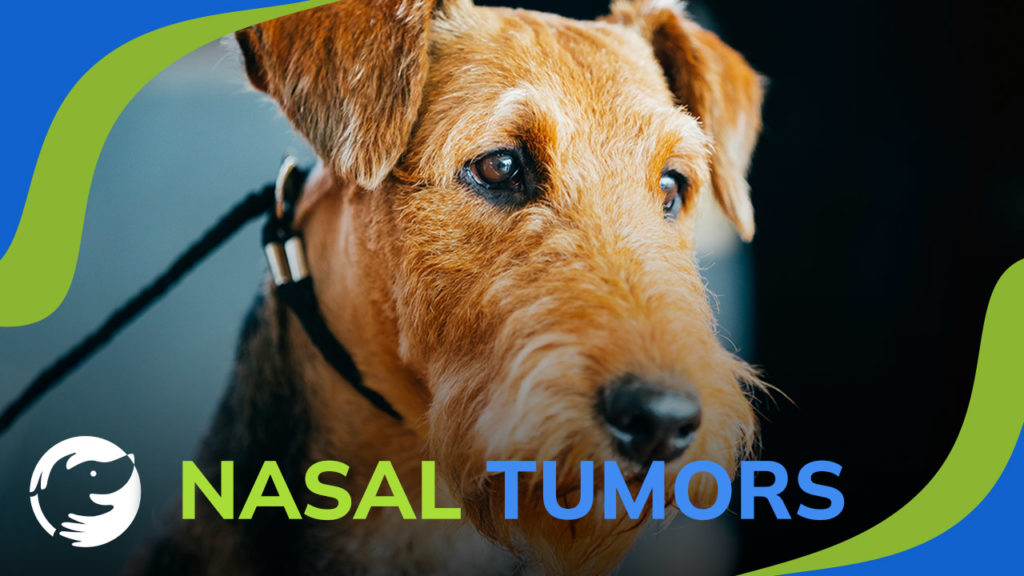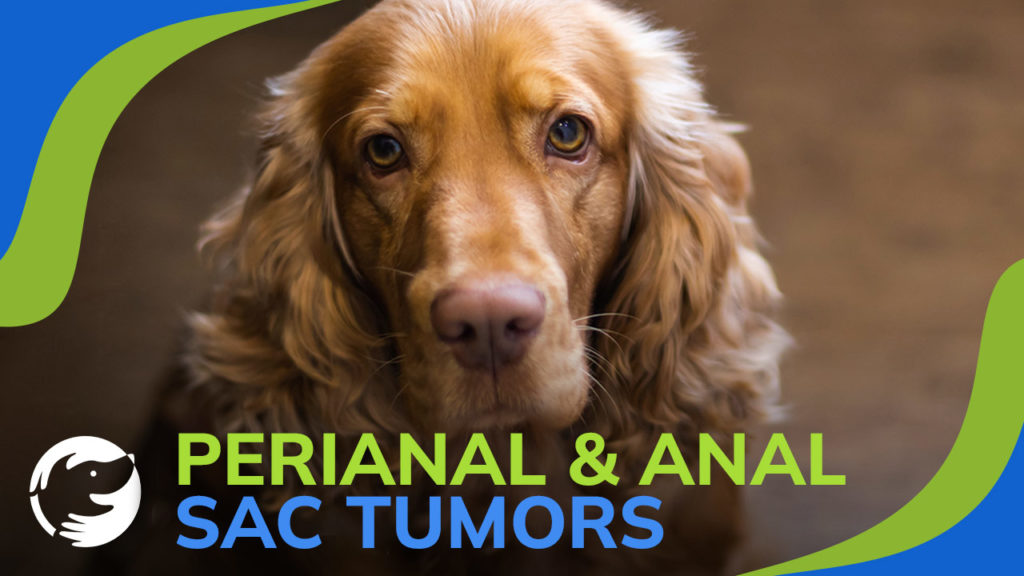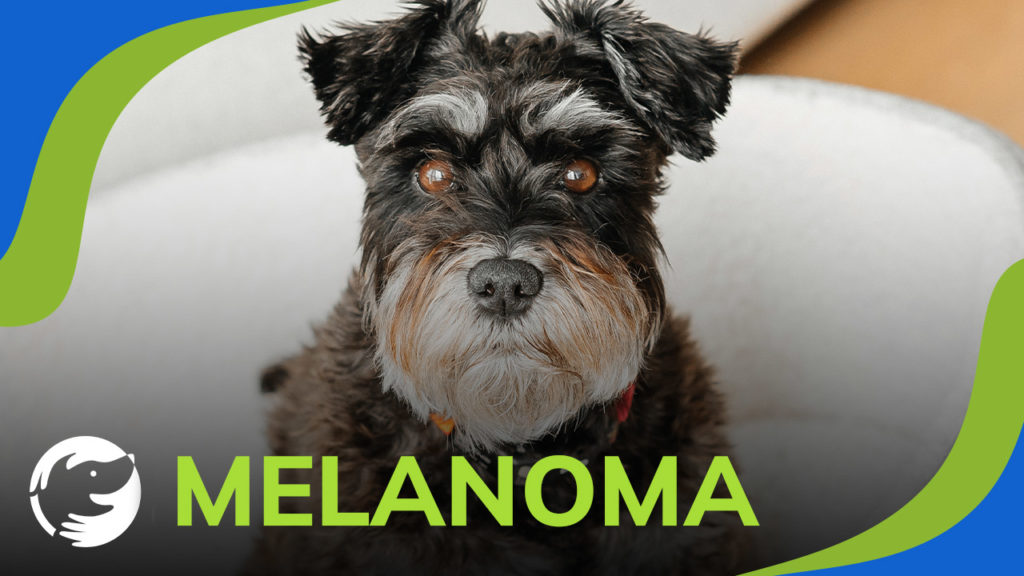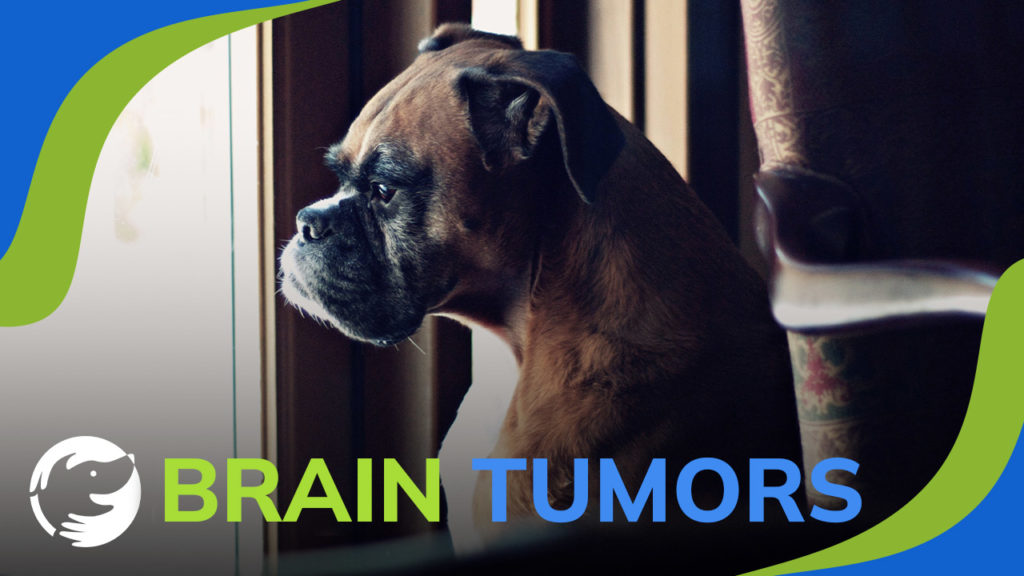
Nasal Tumors – What You Need to Know About Your Dog’s Cancer
Find out how nasal cancer in dogs is diagnosed and what you can do to improve your dog's prognosis and life quality.
James Jacobson: One of the cancers that you talk about in The Dog Cancer Survival Guide is nasal cancers. Dr. Dressler, I’ll throw this question out to you first, if your dog has cancer of the nose, what are the likely signs and symptoms that you might be looking’ at?
Dr. Demian Dressler: Nasal cancers are tricky, and the reason why they are tricky is because the fact that they grow within the nasal sinuses. And we can’t see into the nasal sinuses with our naked eyes as guardians or as Veterinarians for that matter. And so, many times we have to rely on things progressing to the extent that we see signs from the outside of the dog’s body, or the dog’s doing something different that, with normally be witnessed. Some examples should be a discharge that is some material green, yellow, or occasionally bloody or mucousy coming out of, one of the nostrils. Sometimes, we’ll see a bit of a swelling in the area of the muscle either a strange or sometimes it’s even a cavities so a depression in the area of the muscle. And very, very rarely I have seen nasal cancers show as dogs are having a some gagging or some swallowing, or some peculiar coughing noises, or something like that, and these are most commonly occurring when the nasal tumors are farther back in the nasal sinus.
Dr. Susan Ettinger: This is a, in some ways similar to bladder cancer in dogs and not a lot of patients have a secondary infection on top of the cancer which is a little bit confusing for the guardian and sometimes Veterinarian because they start the many antibiotics and the symptoms to discharge improves and so you think it’s just an infection but in general there’s a possibility that there is an underlying cancer in the nasal and the sinus cavities so that can be a little bit confusing and so I think it’s one of those, that’s going on with your dog. You wanna, really consider pursuing advanced diagnostics and often you’ll need a nasal biopsy and in best case scenario the better way to diagnosis is with a CT scan and Rhynoscopy which is a scoping procedure where they’re gonna get a biopsy, but that’s really gonna give you the complete picture about the extent of the disease on the type of nasal cancer that your dog has.
James Jacobson: Dr. Dressler, your thoughts on treatment options for nasal cancer.
Dr. Demian Dressler: Well, treating options we, as usual have a lot of different things to choose from. A nasal cancer can be a little bit frustrating in some cases. It’s difficult to achieve a cure. Radiation is one of the central ways that nasal cancers are treated and radiation therapy many times does a lot of good with respect to improving life quality and also longevity. Surgery in some cases can be tough because the surgery that’s needed many times would be so extensive, in other times many, many time so extensive that is just not possible. We’ve also got to remember that changing the diet can be an important additional help to fighting cancer for a K9 patient. The additional supplements can be very usual including those that turn on cells suicide in cancer cells, those were called apoptogens. And of course life quality enrichment with deliberately improving things that are the joys in life for our patients and we of course can’t forget that pain control when appropriate.
James Jacobson: There’s a lot of information if your dog has…
Dr. Susan Ettinger: I’d like to.. Can I add some please?
James Jacobson: Please! Please!
Dr. Susan Ettinger: So, I think in terms of conventional treatment options as Dr. Dressler mentioned, surgery itself is not doesn’t really achieve white clean margins. It’s very hard to remove the entire tumor from the nasal cavity and radiation is really the main conventional treatment. Most nasal cancers tend to stay local in the nasal and sinus cavities so they have a low spread rate. And there’s a, two main types of radiation out there. One is conventional radiation and then there are a few places in the country including the hospital that I worked at in New York that has a type of radiation called radiosurgery and nasal cancers are the second most common cancer that we treat with radiosurgery with our cyberknife unit. And it allows the nasal cancer to be treated instead of fifteen to twenty treatments and three treatments were just less trips to the hospital, less anaesthesias for your pets and actually less side effects with very comfortable treatment efficacy. So, again this is an evolving field, there are some newer treatment options out there and definitely, some new things to learn about.
James Jacobson: Well, and if you’re looking at cyberknife, we have a video in this series specifically about that procedure. A very interesting one and lots of information in the book both about that and all the options are available to you if your dog has tumors in the nasal region. More information in the book but for now I wanna thank you both for joining us, Dr. Ettinger in New York, Dr. Dressler in Hawaii, thank you.
Topics
Did You Find This Helpful? Share It with Your Pack!
Use the buttons to share what you learned on social media, download a PDF, print this out, or email it to your veterinarian.
Editor's Picks
CATEGORY




